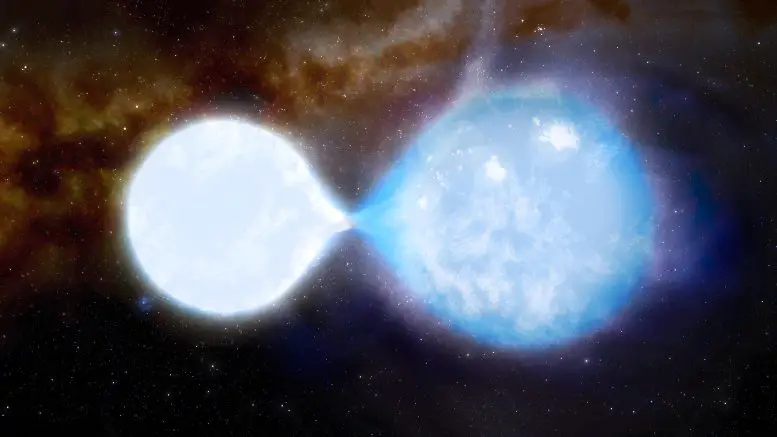Scientists say humans could use black holes as batteries in the future
- December 12, 2023
- 0
The gravitational force of black holes is so strong that nothing can escape from it. So, can we benefit from the huge power of black holes as an
The gravitational force of black holes is so strong that nothing can escape from it. So, can we benefit from the huge power of black holes as an

The gravitational force of black holes is so strong that nothing can escape from it. So, can we benefit from the huge power of black holes as an energy source? In a new study, scientists propose two ways to one day use black holes as an energy source. They predicted the processes of extracting energy from black holes using their spin and gravitational properties.
“We know that we can extract energy from black holes, and we also know that we can inject energy into them almost like a battery,” said lead author Zhang Feng Mai, a postdoctoral researcher at the Kavli Institute for Astronomy and Astrophysics in Live Science. from Peking University.
In the first hypothetical scenario, scientists would “charge” a black hole by injecting large amounts of electrically charged particles into it. These charges will continue to be absorbed until the black hole itself has an electric field that begins to repel any additional charges they try to add, scientists explained in a study published Nov. 29 in the journal Physical Review D.
When this electromagnetic repulsion is greater than the black hole’s gravity, scientists will consider the black hole to be “fully charged.” According to Einstein’s theory of general relativity, which states that mass can be considered equivalent to energy, the current energy of a black hole will come from the combination of the electric charges injected into it and the mass of these electric charges.
“The black hole battery converts the mass energy of the particle into charge energy,” May said.
Researchers estimate the efficiency of the recharge process to be 25%; This means that black hole batteries can convert about a quarter of the input mass into available energy in the form of an electric field. This would make the battery about 250 times more efficient than an atomic bomb, according to the team’s calculations.
To obtain the energy, researchers will use a process known as superradiation, which is based on the theory that space-time is literally pulled around a rotating black hole by its intense gravitational field.
Gravitational or electromagnetic waves that enter this spin region will also drift, but assuming they haven’t yet crossed the black hole’s event horizon (the boundary from which nothing, not even light, can escape), some waves may be deflected due to greater energy. It’s more than they initially carried, the researchers write. This process will convert the rotational energy determined by the black hole’s mass into deflected waves.
Another method of harnessing the energy of black holes involves releasing this energy in the form of Schwinger pairs, or paired particles that form spontaneously in the presence of an electric field.
If we started with a fully charged black hole, the electric field near the event horizon could be so strong that it could spontaneously create an electron and a positron, similar to an electron but with the opposite charge, May explained. If the black hole were positively charged, the positron would fly out of the black hole due to repulsion. Theoretically, this escaping particle can be collected as energy.
May said he didn’t know if we’d see such a battery, but the theoretical exercise was inspired by scientists’ previous attempts to theoretically extract energy from black holes.
“We see a black hole as a place where quantum mechanics and gravity must somehow come together,” physicist Danielle Faccio of the University of Glasgow, who was not involved in the study, told LiveScience. “When we look at them from an energy extraction perspective, we can understand a little more of what’s going on.”
Source: Port Altele
As an experienced journalist and author, Mary has been reporting on the latest news and trends for over 5 years. With a passion for uncovering the stories behind the headlines, Mary has earned a reputation as a trusted voice in the world of journalism. Her writing style is insightful, engaging and thought-provoking, as she takes a deep dive into the most pressing issues of our time.